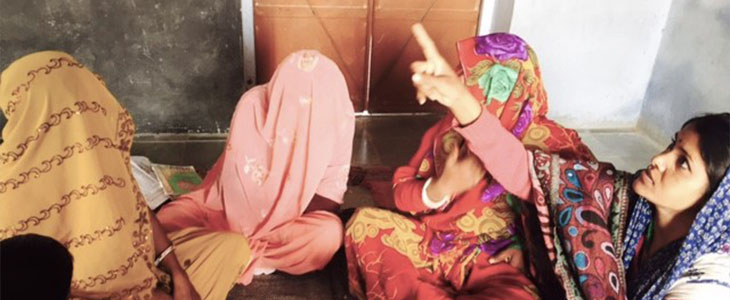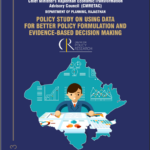
PART II – ACCOUNTABILITY INITIATIVE (AI) AND SCHOOL MANAGEMENT COMMITTEES (SMC)
29 June 2016
This is the second part of our blog on School Management Committees (SMC). Previously we illustrated the need for intervention with SMCs and the resonance of AIs goals with working with SMCs. This week, we will present the work being undertaken and the challenges in taking this forward.
Why does AI continue its work with SMCs?
Despite the policy constraints, apathy and challenges in implementation, AI has recently expanded its work with SMCs to address core difficulties in SMCs that we have learned through our experience. Whatever the nature of the policy, we are committed to preparing people to become part of that change. Our interest is in governance. We know that despite the policy or program, the way people engage with the service delivery systems and the management of these services by the frontline resources of the system need support to improve.
Even though fiscal literacy should be central to empowering SMCs, we have found that the preparation to provide this support is wanting. We are in a position to help through practical, user friendly materials and tools.
Similarly, we are well positioned to help build capacities of frontline and block level government personnel and are trying to do it in a way that can seamlessly become part of a change in the way the program is managed and how the community participates in program.
We know sharing information and mentoring skills that can process it to knowledge and practice, works.
In Nalanda (2011-13), of the 32% of schools that requested for at least 1 infrastructure activity, 11% of them were able to pull funds for it towards their schools.
The policy recommendations that emerge from our work are as follows:
- Schools will be better equipped to meet their outcomes if they are clear on what to spend on, how much and when. Hence if policy could move towards providing untied block grants to SMCs and move away from the norm driven system, it would create the space for more fiscal efficiency.
- The fourteenth Finance Commission’s (FFC) recommendations have changed the way funds will be devolved. We are keen to see how states interpret and implement in the new context.
- Better capacity building at all levels – leading to more empowered community bodies.
- Focus on frontline Government officials and their preparedness to expect, want, facilitate and absorb participation (spend community mobilization money).
- The reconstitution of what is incentivised and not in the way implementation is governed such that the intent required for participation is embedded in the system in the way it conducts itself. (6) The links between Panchayats and SMCs need strengthening. This may be the only way that policy can hope to reorient decision making processes so that they are genuinely bottom up.
- Opportunity to explore the functional activity at various levels. As well as look into the nature and design of governance for SMCs. This is because currently it is being asked to deliver something quite different from what it was designed to.
The question becomes: While cascades and instructions have served the purpose till now, are they really equipped to deliver collaboration and informed participation?
- Focus on HR practices and management. The nature and extent of accountability will be impacted by changes in policy in these aspects.
- And finally tackling the much simpler and straight forward task to Build a real time MIS to ensure accountability for spending.
We are working both directly as well as through partners in Rajasthan, Madhya Pradesh and Bihar and very closely with the Government structure to potentially contribute to the way SMCs can engage. Our work is now focused on HOW to embed our recommendation with the Government structure, with civil society organizations, PRIs and the community; in a way in which we can make a complete suggestions to the Government to take into account the potential implementation gaps.
Pritha Ghosh is Programme Lead: Strategy and Implementation, at Accountability Initiative. Her role is to develop a strategic implementation vision and plan for Accountability Initiative’s work at the state and district level with a view to ensure that Accountability Initiative’s research translates in to a reform agenda on the ground.





